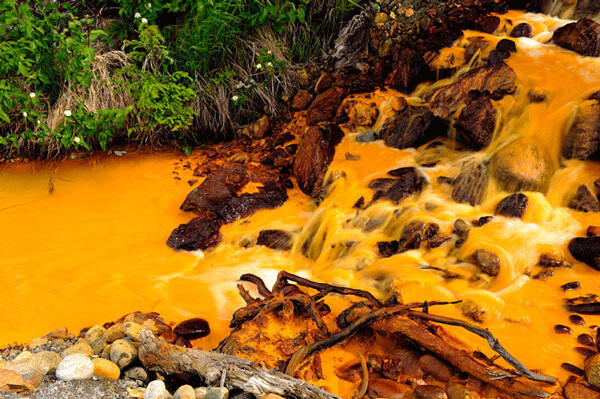News & Articles
Browse all content by date.

I want to share the Dec. 3 announcement from eight conservation and clean water groups of their appeal of Minnesota State permits issued for the PolyMet open-pit sulfide mine in northern Minnesota. The groups are challenging the permits issued by the Minnesota Department of Natural Resources (DNR) that would allow PolyMet to operate a 528-acre copper-nickel mine and to appropriate 6-billion gallons of fresh water per year. In addition to the permit appeals, a separate filing asks the Minnesota Court of Appeals to overturn Minnesota’s non-ferrous mining rules, saying they are too vague to be adequately enforced by courts and regulatory agencies.
“The courts must hold the DNR accountable to the law or PolyMet’s permits will be a blank check, paid for by the clean water, health, and pocketbooks of Minnesotans,” stated Kathryn Hoffman, chief executive officer of the Minnesota Center for Environmental Advocacy.
The department ignored tens of thousands of Minnesotans who asked it to protect people and the environment from PolyMet’s proposed mine. The permits for PolyMet’s proposed mine do not protect people downstream from the pollution the mine would create. The department arbitrarily rejected less risky alternatives for managing mine waste.
The permits: allow PolyMet to threaten water downstream for hundreds of years after mining ends; fail to address concerns of engineers who fear the mine’s proposed waste dam is dangerous; and fail to protect Minnesota taxpayers from being stuck with up to $1 billion in cleanup costs.
“Taxpayers fund Minnesota DNR believing the agency will responsibly manage our natural resources,” said Chris Knopf, executive director of Friends of the Boundary Waters Wilderness. “With PolyMet, they put mining interests first and gave judicial review, popular opinion, and environmental considerations the back seat.”
The state permits also fail to define how long PolyMet will be allowed to mine or describe PolyMet’s exact mining and mine closure plans. Minnesota rules require final design plans to be submitted before permits are issued, but the state agency’s permits allow PolyMet to develop the open-pit mine and submit plans for closure later. The permits do not establish any standards for the approval of these future plans and the public will not be able to comment on them.
Myth of Strong Minnesota Regulations
“There is a myth in Minnesota that we have tough regulators. It’s just the opposite,” stated Paula Maccabee, advocacy director and counsel for WaterLegacy. “The DNR has granted PolyMet a permit to mine admitting that its ‘design and operational details’ are not ‘firmly in place.’ At the very least, with Minnesota’s first proposed sulfide mine, we should demand that no permits be issued unless and until PolyMet shows us - and an unbiased administrative judge - that they know what they’re doing.” WaterLegacy in 2015 petitioned the US EPA urging suspension of DNR and Minnesota Pollution Control Agency (MPCA) oversight authority, arguing that mining interests have undue influence in setting and enforcing water quality standards, and that the state legislature has deprived the MPCA of legal authority to implement the Clean Water Act. The petition is pending.
The new appeals also challenge the Minnesota state agency’s decision to deny requests for a “contested case hearing.” Such a hearing allows the case to be reviewed by a neutral administrative law judge, which is common for large, complex projects. The eight groups argue that the DNR was required to grant a contested case hearing before it issued any permits. “With over 1,300 signatures and a majority of elected officials, Duluthians openly requested a contested case hearing on this permit,” said J.T. Haines, an attorney and organizer with Duluth for Clean Water.
“That hearing should have been ordered. The process fails all the time with sulfide mining, and we don’t want to be the next example of communities harmed by downstream pollution,” Haines said.
“It’s reckless for the state to allow an open-pit copper mine at the precious headwaters of Lake Superior,” said Marc Fink, a Duluth attorney for the Center for Biological Diversity. “State officials are abdicating their responsibility to protect public health and the environment. They’re moving forward with unproven, incomplete mine plans even though they know PolyMet would destroy thousands of acres of wetlands and require water treatment for generations to come.”
December’s appeals are in addition to separate requests the groups made to the DNR and the MPCA in November. The groups asked the agencies suspend all permits for PolyMet until the Minnesota Court of Appeals rules on whether the DNR should prepare an environmental impact statement for the vastly larger versions of the proposed copper mine that PolyMet has described to its investors.
The groups appealing the permits are CENTER for BIOLOGICAL DIVERSITY, DULUTH for CLEAN WATER, FRIENDS of the BOUNDARY WATERS WILDERNESS, FRIENDS of the CLOQUET VALLEY STATE FOREST, MINNESOTA CENTER for ENVIRONMENTAL ADVOCACY, SAVE LAKE SUPERIOR ASSOCIATION, SAVE OUR SKY BLUE WATERS, and WATERLEGACY.
- High resolution video of the PolyMet mine and plant sites are available for use with proper credit, at: bit.ly/polymetsitevideo to download.
| Tweet |

